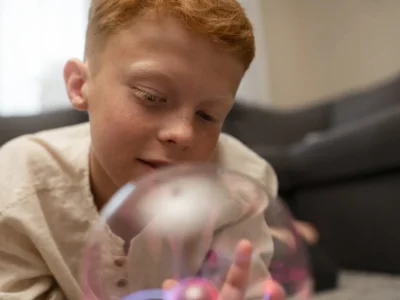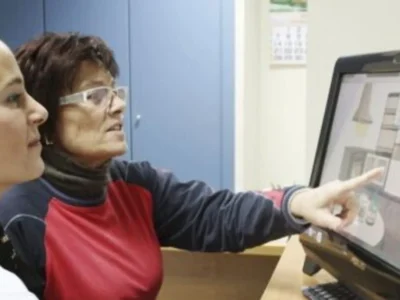Neuropsychologist Javier Esteban Libiano explains what prospective memory is, how to assess it, the variables that influence it, and its differences with retrospective memory.
Among the different cognitive capacities that allow us to carry out our lives in a way that conforms to convention, one of the most important is memory. This ability allows us to process, consolidate and retrieve information in order to interpret and perform behaviors and actions that are relevant and appropriate at any given moment, as well as to interpret familiar situations through experience and act accordingly.
Prospective memory
Within the taxonomic classification of memory we find prospective memory, a quality or ability of our memory system that enables us to execute actions in the future, at a specific time and place, previously planned or agreed upon in a past period. Prospective memory is influenced by different variables that modulate its proper functioning.
Context
To provide context, we can define the cognitive capacities or skills as a set of aptitudes, attitudes, processes and faculties of our mind. They are what allow us to perceive, attend, process, select, interpret, analyze and respond to everything around us so that we can adapt appropriately to our environment and to the different contexts and situations that arise at any given time.
Within cognitive capacities is memory. This ability allows us to remember how to follow a recipe, how to drive a car.
Within the divisions of memory classification models we find prospective memory, which allows us to process actions that we will perform in the future and to consolidate the trace that will allow us to activate the appropriate retrieval cue, which will prompt us at the precise moment and in the appropriate place to carry out a behavior planned in the past.
What is prospective memory?
Prospective memory is a complex memory capacity that requires remembering a planned action. For example, this function is especially important for people to remember to take medication at the right time, attend their doctor’s appointment on the agreed day and time, buy a specific product the next time they are at the supermarket, remember when passing by the pharmacy that they need to buy the product they ran out of, fill up the tank when passing by the gas station…
Prospective memory allows us to intentionally carry out plans in a future time. It is the encoding, storage and delayed retrieval of future actions (Shum et al., 2011); it is the memory to fulfill future intentions and is fundamental for functioning in our daily lives.
Prospective memory deficits
Impairment of prospective memory can have harmful effects on an individual’s health and on their independence and autonomy, affecting both basic activities of daily living (Groot et al., 2002; Shum et al., 2002), and instrumental activities of daily living (Fish et al., 2010; Man et al.,2015; Woods et al., 2012).
Differences between prospective and retrospective memory
Prospective memory, unlike retrospective memory, which refers to the recognition or recall of past information, for example what we bought yesterday, refers to a person’s ability to remember, initiate and carry out at the appropriate moment an action they have planned to accomplish in the future (Einstein & McDaniel, 1990; McDaniel & Einstein, 2000), for example, that we need to buy a certain product when passing by a specific store.
Contextualization of prospective memory
Memory classification models consider prospective memory as part of episodic declarative memory, divided in turn into prospective memory, oriented toward the future, and retrospective memory, oriented toward the past.
Neuroanatomical structures
Neuroanatomical and neuroimaging studies have identified the medial temporal lobe as the neural system that supports declarative memory (Cabeza y Nyberg, 2000). The hippocampus and its adjacent regions, the entorhinal, perirhinal and parahippocampal cortex, are activated during the recall of information learned in the past, although very consolidated remote memories also depend on posterior areas of the associative cortex.
Neuroanatomically this memory initially depends on the medial temporal lobe, but during episodic memory retrieval there is activation of the right prefrontal cortex (Cabeza & Nyberg, 2000).
Relationship with executive functions
Since the mnestic processes of prospective memory involve implementing a previously planned course of action, the executive functions provide a whole array of support for that prospective memory.
Executive functions are the abilities that allow us to plan actions, make decisions, generate an action plan and evaluate goals and subgoals; likewise, they allow us to monitor the different goal-directed steps, reorient and correct the actions that divert us from the action we want to achieve. Through executive functions we can initiate and trigger the start of actions, flexibilize final and intermediate objectives, organize ourselves, anticipate and inhibit.
These functions entail a complex system of processes that occur in an orderly and simultaneous manner and that will work together with prospective memory in the development of a behavior that we are going to carry out.
Evaluation paradigms in the laboratory
Prospective memory can be evaluated with two types of situations in the laboratory, which are inspired by the Einstein and McDaniel paradigm.
In the first situation the participant is placed in the execution of a “dual task”. The secondary task consists, for example, of memorizing words; at the same time, the participant must remember to perform an action, for example, to press a button at a determined time, or follow a certain regularity, for example, every three minutes; these tasks are called “time-based”.
The other form of evaluating prospective memory would be through performing an agreed action, pressing a button, for example, upon the appearance of a specific stimulus, let us suppose the appearance of a word that begins with the syllable “ca” from their list of words to memorize; these evaluation tasks are called “event-based”, because the prospective memory task must be executed after the appearance of a specific stimulus.
Variables that influence prospective memory
Age
Regarding the variables that can influence the proper functioning of prospective memory, we can point to the data from a study carried out by Azzopardi, B. et all. (2021) in which they compared the performance of older and younger people in different prospective memory tasks.
In the results obtained they observed that older people generally perform worse than young people in laboratory prospective memory tasks, but fare better than younger people in naturalistic prospective memory tasks. They attributed this result to a higher level of motivation among older people and the fact that they more frequently resort to external compensatory aids to improve the memory retrieval process.
Sleep
Continuing with another investigation, Fine et all. (2018) aimed to determine the relationship between sleep and prospective memory in a sample of adults. As an initial premise, the authors proposed that a lower amount of sleep would lead to poorer performance on prospective memory tasks. They found that longer sleep disruptions are associated with worse event-related prospective memory and that prospective memory deficit is caused by sleep disturbances regardless of age.
The spatial retrieval cue
In another line of research O´Rear, A. and Radvansky, G. (2019) set out to explore the effectiveness of prospective memory when the retrieval cue is a spatial frame in which a person is located, for example, passing by a particular shop. They demonstrated that having a spatial retrieval cue improved participants’ performance in the retrieval process.
Smartphones
Continuing with the topic of retrieval cues, Haj, M. et all. (2021) compared the effects on prospective memory of using notes in a paper calendar to remember to perform a task versus notes in smartphone calendars.
The results showed fewer omissions of prospective events in the group that used the smartphone calendar than in the group that used the paper calendar.
The superior recall effect of people who used the smartphone calendar can be attributed to the fact that, unlike paper calendars, smartphone calendar applications have the advantage of sending notifications before the start of the prospective event. Therefore, these apps require fewer self-initiated processes than in the case of the group that used the paper calendar, which would need to consult the calendar to view pending prospective memory tasks.
Alcohol consumption
In another exploration carried out by Ellyot, M. et all (2021) on prospective memory deficits following high alcohol consumption, they concluded that acute alcohol intoxication led to a significant impairment in all prospective memory tasks evaluated, with mostly large effects. And although women recorded higher blood alcohol concentrations than men, no sex differences were identified in the performance on the prospective memory tasks assessed.
Their results showed that alcohol consumption, even at moderate doses, substantially impaired prospective memory function.
Strokes
On the other hand, Hogan, C. et all (2021) studied the effects on prospective memory after an episode of stroke and inferred that people who suffered the cerebrovascular incident had more prospective memory failures than healthy controls, but underestimated the importance of such memory lapses.
Emotions and Alzheimer’s
Moreover, Graa, M. & Ergis, A.M. (2021), in their publication “Memoria prospectiva, emociones y enfermedad de Alzheimer” examined the links between prospective memory and emotions in Alzheimer’s disease, since it has been shown that patients with Alzheimer’s disease generally remember information with positive emotional valence better.
The results of their research showed that the performance of patients with Alzheimer’s disease was significantly lower than that of healthy older participants, both in “event-based” and “time-based” task conditions. However, patients with Alzheimer’s disease obtained scores similar to those of healthy older subjects on “event-based” tasks associated with positive emotional valence.
The association of positive stimuli linked to prospective memory tasks seems to allow patients with Alzheimer’s disease to compensate for their prospective memory difficulties.
Conclusions
In conclusion, prospective memory is the ability that allows us to carry out plans in the future that we had previously projected in the past. This type of activity is influenced, among other variables, by age, sleep, retrieval cues, alcohol consumption… Thanks to neuropsychological rehabilitation applications we can work with the taxonomic classification of memory and specifically with prospective memory, which is fundamental for the diligent development of a life with autonomy and independence.
Bibliography
- Azzopardi B, Auffray C, Juhel J. (2015) L’effet paradoxal du vieillissement sur la mémoire prospective: hypothèses explicatives [Age-prospective memory-paradox: explanatory hypotheses]. Geriatr Psychol Neuropsychiatr Vieil 13(1):64-72. French. doi: 10.1684/pnv.2014.0513. PMID: 25786425.
- Cabera, R. & Nyberg, L. (2000). Neural bases of learning and memory: functional neuroimaging evidence. Curren opinión in neurology 13(4), 415.
- Einstein, G.O. & McDaniel, M.A. (1990) Normal aging and prospective memory. J Exp Psychol Learn Mem Cogn ; 16 : 717-26.
- El Haj M, Moustafa AA, Gallouj K, Allain P. Cuing. (2021). Prospective Memory With Smartphone-Based Calendars in Alzheimer’s Disease. Arch Clin Neuropsychol. 21;36(3):316-321. doi: 10.1093/arclin/acaa060. PMID: 32766676.
- Elliott M, Terrett G, Curran HV, De Bono N, Rendell PG, Henry JD. (2021). Prospective memory deficits following acute alcohol consumption. J Psychopharmacol. (11):1386-1397. doi: 10.1177/02698811211056195. PMID: 34747256.
- Fine L, Weinborn M, Ng A, Loft S, Li YR, Hodgson E, Parker D, Rainey Smith S, Sohrabi HR, Brown B, Martins R, Bucks RS. (2019). Sleep disruption explains age-related prospective memory deficits: implications for cognitive aging and intervention. Neuropsychol Dev Cogn B Aging Neuropsychol Cogn. (4):621-636. doi: 10.1080/13825585.2018.1513449. Epub 2018 Aug 30. PMID: 30160598.
- Fish, J., Wilson, B. A., & Manly, T. (2010). The assessment and rehabilitation of prospective memory problems in people with neurological disorders: A review. Neuropsychological Rehabilitation, 20(2), 161–179. https://doi.org/10.1080/09602010903126029
- Graa M, Ergis AM. (2021). Mémoire prospective, émotions et maladie d’Alzheimer [Prospective memory, emotions and Alzheimer’s disease]. Geriatr Psychol Neuropsychiatr Vieil 1;19(3):332-340. French. doi: 10.1684/pnv.2021.0959. PMID: 34609297.
More references
Groot, Y. C. T., Wilson, B. A., Evans, J., & Watson, P. (2002). Prospective memory functioning in people with and without brain injury. Journal of the International Neuropsychological Society, 8(2), 645–654. https://doi.org/10.1017/S1355617702801321
Hogan C, Cornwell P, Fleming J, Man DWK, Shum D. (2020). Self-reported prospective memory after stroke. Neuropsychol Rehabil. 2021 Sep;31(8):1190-1206. doi: 10.1080/09602011.2020.1769686. PMID: 32482133.
McDaniel, M.A; Einstein G.O. (2000). Strategic and automatic processes in prospective memory retrieval : a multiprocess framework. Appl Cogn Psychol; 14 : S127-44.
Man, D. W. K., Yip, C., Lee, G., Fleming, J., & Shum, D. (2015). Self-report prospective memory problems in people with stroke. Brain Injury, 29(3), 329–335. https://doi.org/10.3109/ 02699052.2014.974672
O’Rear AE, Radvansky GA. (2019). Location-based prospective memory. Q J Exp Psychol (Hove). 72(3):491-507. doi: 10.1177/1747021818758608. Epub 2018 Feb 19. PMID: 29364055.
Shum, D., Fleming, J., & Neulinger, K. (2002). Prospective memory and traumatic brain injury: A review. Brain Impairment, 3(1), 1–16. https://doi.org/10.1375/brim.3.1.1
Shum, D., Levin, H., & Chan, R. C. K. (2011). Prospective memory in patients with closed head injury: A review. Neuropsychologia, 49(8), 2156–2165. https://doi.org/10.1016/j. neuropsychologia.2011.02.006
Woods, S. P., Weinborn, M., Velnoweth, A., Rooney, A., & Bucks, R. S. (2012). Memory for intentions is uniquely associated with instrumental activities of daily living in healthy older adults. Journal of the International Neuropsychological Society, 18(1), 134–138. https://doi. org/10.1017/S1355617711001263
If you liked this article about prospective memory, you may also be interested in these publications:
“This article has been translated. Link to the original article in Spanish:”
Memoria prospectiva: qué es, diferencias con la retrospectiva, contextualización, evaluación y variables influyentes







 7+1 activities for children with special educational needs
7+1 activities for children with special educational needs
Leave a Reply